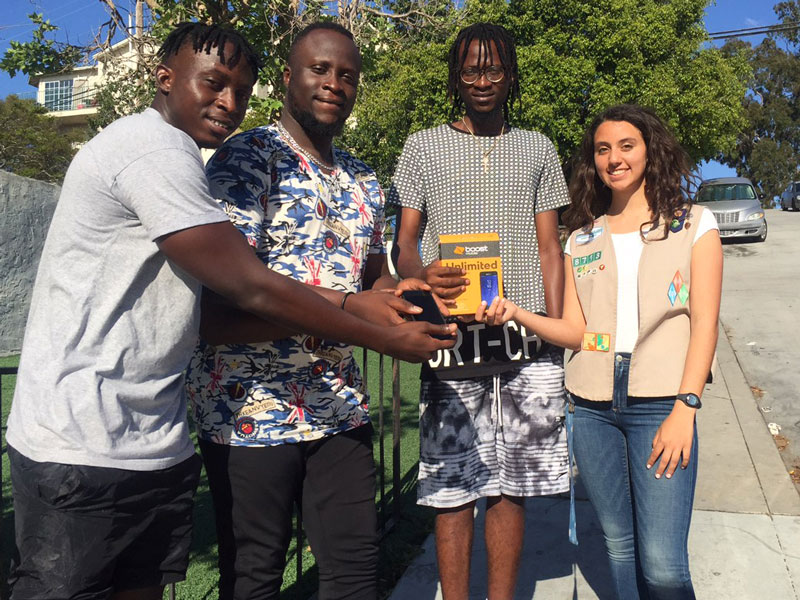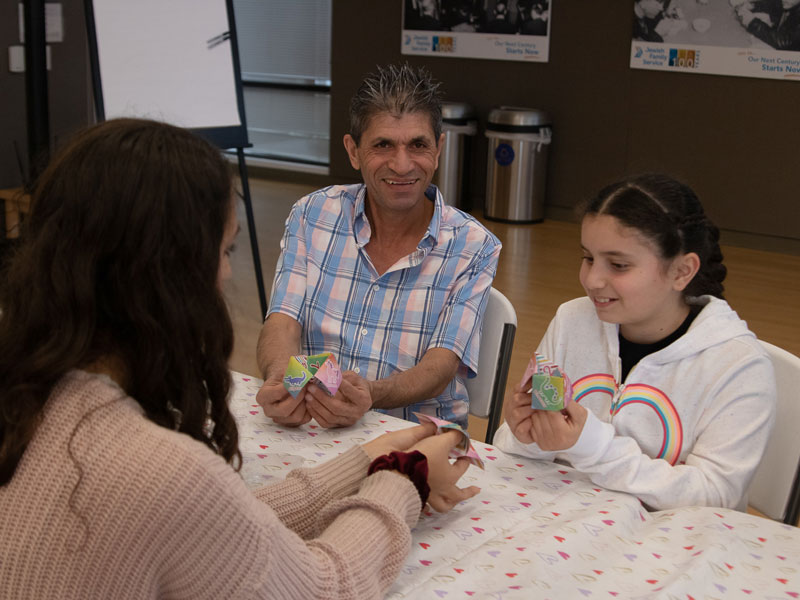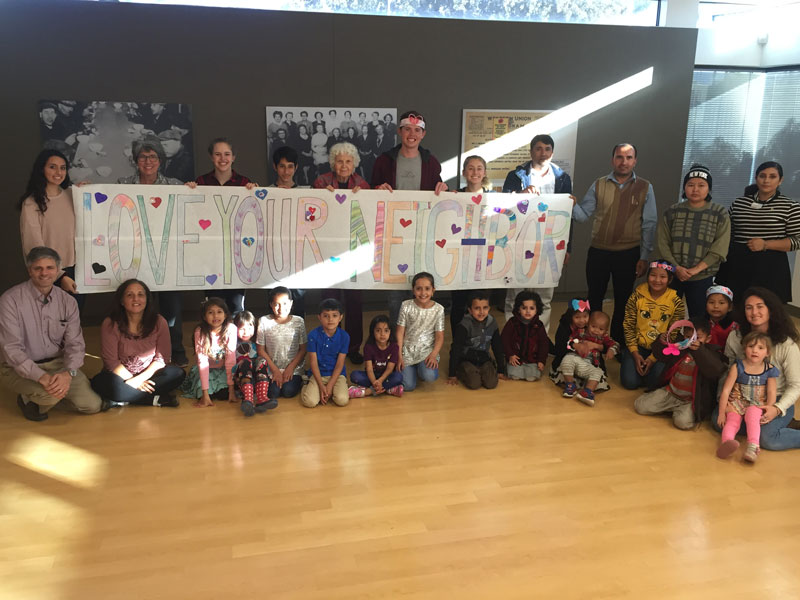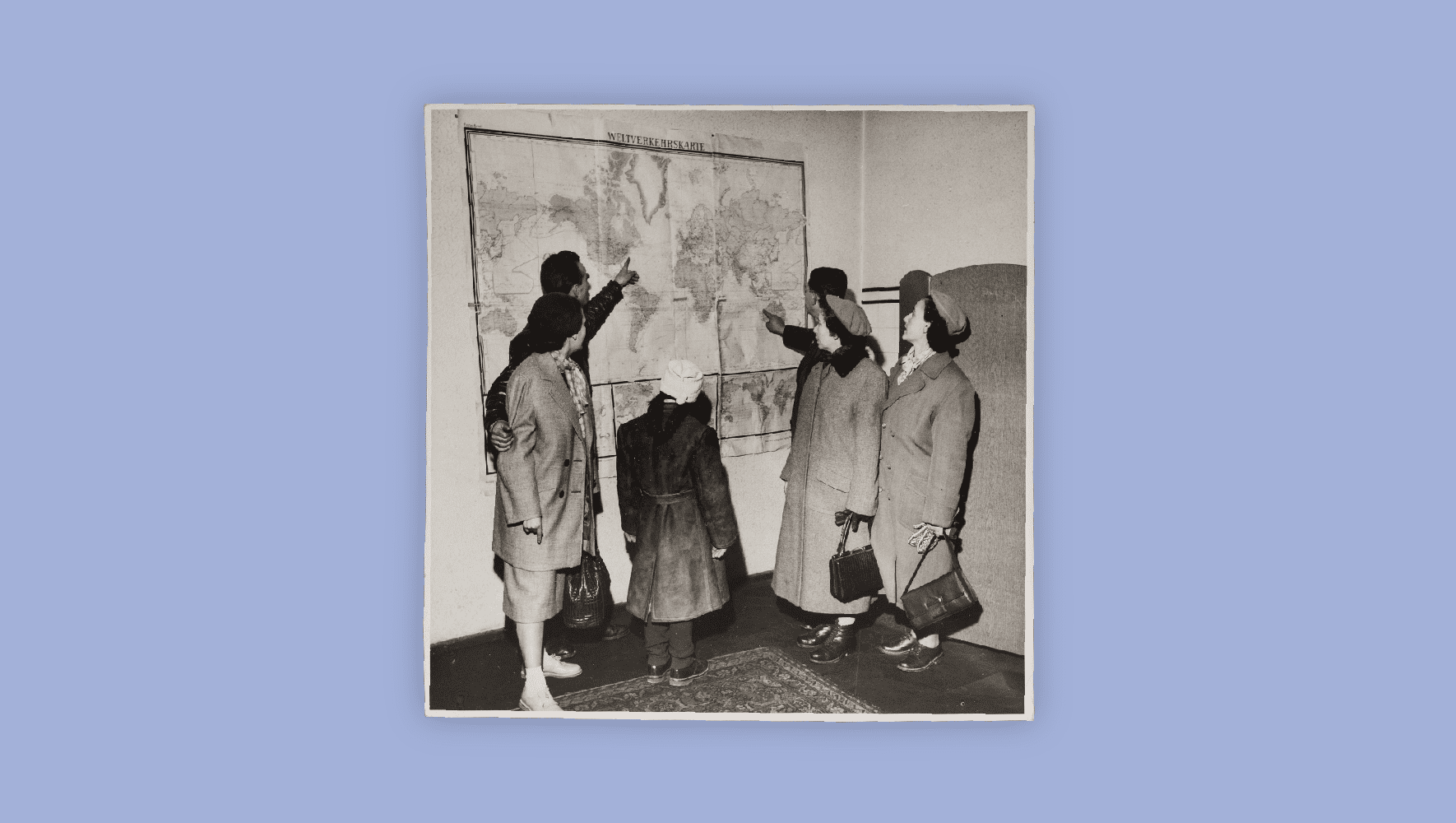Girl Scout Looks Out for Refugees
By Radha Carollo, Guest Contributor
Apr 25, 2019
In my hometown and others, refugees make up a significant part of the community, yet people are often unaware or disregard their presence. Many resettled refugees have limited access to resources when they first arrive and may be isolated. I decided to try to bring refugee families closer to the larger community.
I am a high school junior at Francis Parker School, in San Diego, California, and an Ambassador Girl Scout. The Girl Scout program has taught me to help people at all times and the values of being honest and fair, friendly and helpful, considerate and caring, courageous and strong, responsible to myself, respectful, thrifty, and sisterly, as stated in the Girl Scout Law. Girl Scouts has a succession of awards as scouts progress through the ranks; many involve designing projects to improve their community.
This year I designed a Gold Award project to welcome resettled refugees into the community and provide them with better access to resources. A Gold Award project is a “take action” project which has a sustainable impact in a community and beyond. To put my plan into action, I collaborated with the Jewish Family Service of San Diego, a HIAS affiliate.
My goal was to raise awareness about refugees, in San Diego and around the world, and to hopefully encourage people to help refugees in their own way. My project targeted high school students and other members of the San Diego community.
I created and facilitated informational workshops about refugees, the worldwide refugee crisis, the resettlement process and its relevance to students, and arranged for the workshops to take place in the Global Studies & Statecraft classes at Francis Parker. JFS staff and a resettled refugee came to talk to students.
Another component of my project was creating two interactive events with students, refugees, and other children in the community. One was a "Girl's Culture Night" to exchange culture, food, and dance. At that event, refugee girls, mostly teenagers, were able to interact directly with high school students their own age and explore American culture and share their own culture. My friends and I taught the Macarena and the Cha Cha slide, among other popular dances. The refugee girls, mostly from Afghanistan, taught us some traditional Afghani dances like Attan, the national dance of Afghanistan.
The next event was a Valentine's Day celebration called "Love Your Neighbor." There, young refugees were introduced to the Valentine's Day holiday and the culture and traditions that come with it. About 45 people attended and the refugees learned cookie decorating, card and crown making, banner making, and group bonding activities. I felt the event was successful and that we were able to impart the values of love, friendship, and compassion--the true meaning of Valentine's Day.
The final component of my project was a school supply drive at Francis Parker School to address the lack of educational materials for refugees. While there is a large refugee population in San Diego, many don’t have adequate school supplies. The drive collected supplies for a new "School Supply Shop" to be set up at JFS.
My hope is that the activities and projects I have organized will serve to increase empathy toward refugees. I want to continue to increase awareness within the San Diego student population about the refugees in their community and encourage students to help out.
I realize that the change these efforts bring will only have a lasting effect if they are sustainable, so I tried to address the root cause of the problem, which I see as the failure to meet the needs of refugees and to connect them with the rest of the community. The partnership created between Francis Parker School and Jewish Family Service can continue to connect students and refugees in the future. I personally plan to continue to work with JFS as a volunteer to help improve the process of resettlement and increase the resources provided and available to refugees.
I encourage others to take components of my project and apply them in their own community. Refugees can always use more support and empathy wherever they are in the world.






